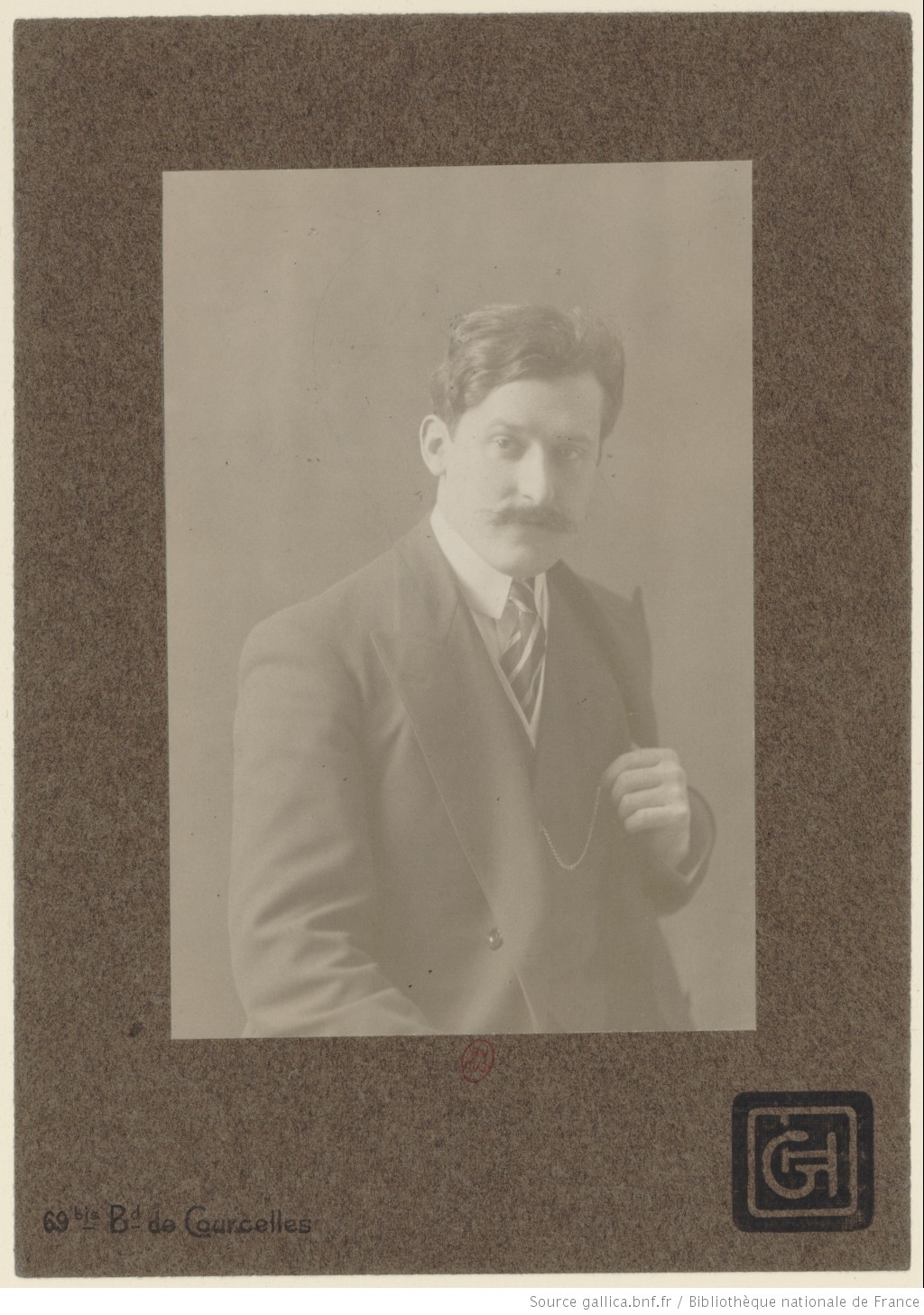Paris-Manchester 1918
Conservatoires in time of war
Philippe Gaubert: the experience of witnessing
5 July 1879 (Cahors) – 8 July 1941 (Paris)
Born into modest circumstances (his father was a cobbler and his mother a dressmaker), Philippe Gaubert began his study of music on the violin and then took up the flute. His talent was noticed by Paul Taffanel (1844-1908), in whose class the young man won first prize in 1894. Appointed first flute in the orchestra of the Paris Opéra in 1895, he continued to study composition at the Conservatoire, where he won first prize for counterpoint and fugue, followed by second place in the Grand prix de Rome in 1905. At the same time, he began a career as an orchestra conductor, becoming second conductor of the orchestra of the Société des concerts du Conservatoire in 1904. After a career interruption due to the war, he was appointed principal conductor of the orchestra in 1919 and continued to lead it until 1938. In 1920, he became first conductor at the Paris Opéra, before being promoted to director of music in 1931 and then managing director in 1939. In tandem with his conductorships, he pursued a teaching career following his appointment as professor of flute at the Conservatoire in 1919 and professor of orchestra and orchestral conducting in 1931. He was still working when he died in 1941.
Called up in 1914, Gaubert served as a stretcher-bearer-musician. The available sources show that he was in the Calonne Road sector on the Meuse hills in 1915, a year that saw terrible fighting in this area. Promoted to sergeant in charge of a small regimental band, Gaubert was awarded the Croix de guerre with palms. In this period, he composed his Poèmes for voice and piano as well as a Suite for flute, cello and piano.
This part of the exhibition is intended to raise questions about the value of the soldiers’ accounts and the stance that we adopt towards them. Although often set down “on the spot” and in unsafe conditions, these testimonies nonetheless represent attempts to reconstruct, through writing, a reality that is beyond us, and which, in the case of the Great War, often escaped their authors as well. The accounts, while often fragmentary because of various forms of censorship, also serve a strategy: they are for publication to a whole group of people, in this case the students and graduates of the Conservatoire.
Bibliography
Beaupré, Nicolas (2006) Écrire en guerre, écrire la guerre. France Allemagne, 1914-1920, Paris: CNRS Éditions.
Branca-Rosoff Sophie (1990) “Conventions d’écriture dans la correspondance des soldats”, Mots. Les langages du politique, No. 24, p. 21-36.
Cru, Jean Norton (1929) Témoins: essai d’analyse et de critique des souvenirs de combattants édités en français de 1915 à 1928, Paris: Presses universitaires de Nancy (new edn. 2006).
Mariot Nicolas (2014) “Avec qui on écrit l’histoire. Le cas du témoignage combattant dans l’historiographie française de la Grande Guerre”, Genèse, No. 95, June 2014, p. 136-155.
Mariot, Nicolas (2016) “Les témoignages des combattants français de 1914-1918. Essai d’état des lieux statistique”, in Heimberg, Charles, Rousseau, Frédéric and Thanassekos, Yannis (eds.) : Témoins et témoignages. Figures et objets dans l’histoire du xxe siècle, p. 79-104.
Prochasson, Christophe (2008) 14-18 Retour d’expérience, Paris: Tallandier.
Prost, Antoine and Winter, Jay (2004) Penser la Grande Guerre. Un essai d’historiographie, Paris: Le Seuil.
Rousseau, Frédéric (2003) L’affaire Norton Cru. Le procès des témoins de la Grande Guerre, Paris: Éditions du Seuil.
Roynette, Odile (2010) Les mots des tranchées. L’invention d’une langue de guerre 1914-1919, Paris: Armand Colin.
Roynette, Odile, Siouffi, Gilles and Steuckardt, Agnès (eds.) (2017) La langue sous le feu. Mots, textes, discours de la Grande Guerre, Rennes: Presses universitaires de Rennes.




